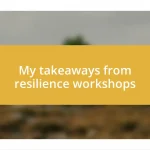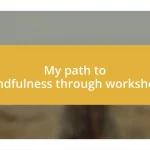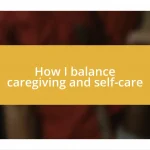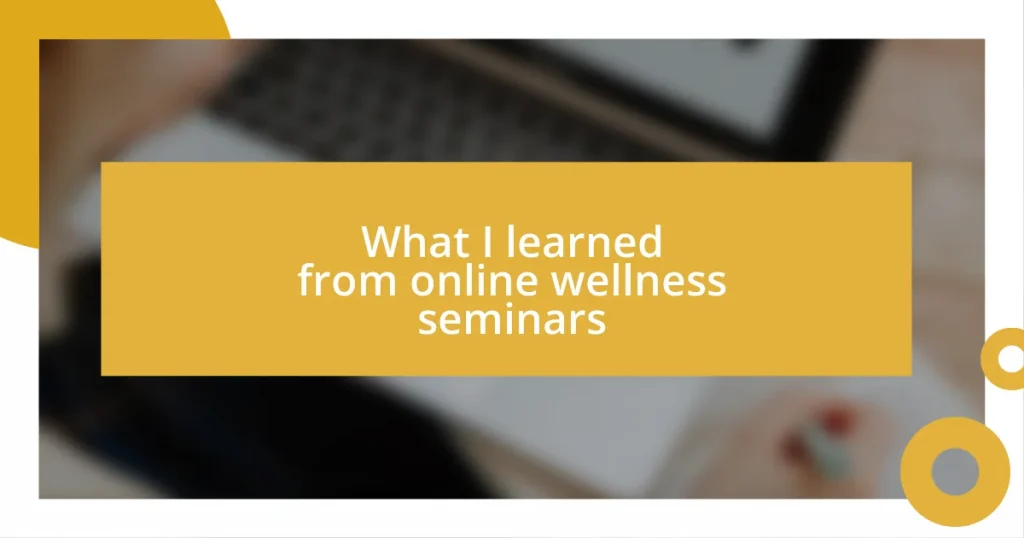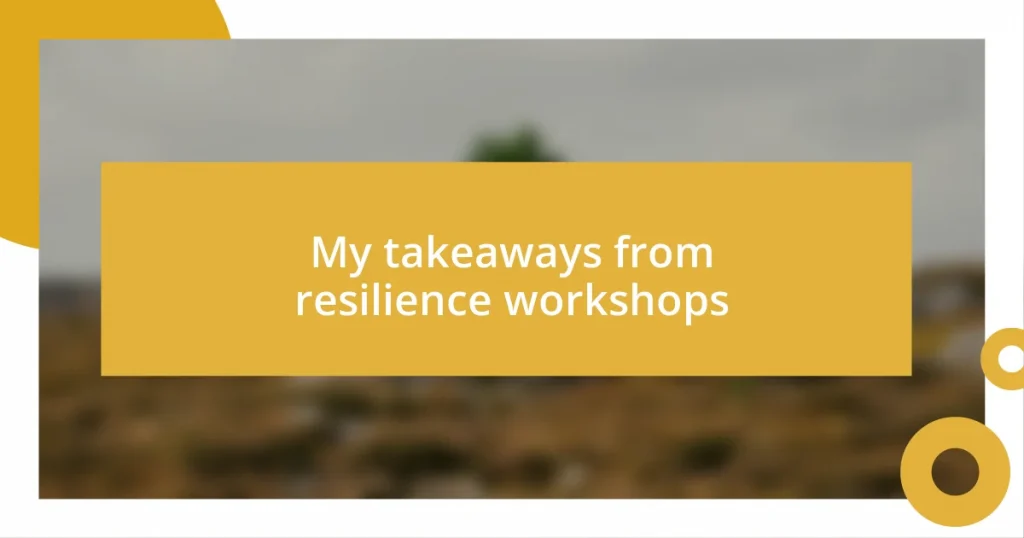Key takeaways:
- Advocacy is vital for ensuring that loved ones are heard and supported, especially in challenging situations like chronic illness or bullying.
- Effective communication skills, such as active listening and empathy, enhance advocacy, helping to build trust and understanding.
- Creating a personalized advocacy plan that considers specific needs, sets clear goals, and remains flexible can significantly improve the support provided to loved ones.

Understanding the need for advocacy
Advocacy is essential because it bridges the gap between those we care about and the support they need. I remember a time when my friend was struggling with a chronic illness; navigating the healthcare system felt overwhelming for her. I stepped in, armed with knowledge and compassion, to help her voice her needs and experiences. Isn’t it heartbreaking to think about how many voices go unheard?
When we advocate for our loved ones, we not only amplify their needs but also empower them to reclaim their agency. I often reflect on how my younger sibling faced bullying at school; advocating for him meant not just standing up to the bullies but also creating a safe space for him to express his feelings. Can you imagine the difference that support made for his self-esteem?
Understanding the need for advocacy is about recognizing that everyone deserves to be heard, especially when they are vulnerable. During my own experience with my elderly neighbor, I found myself navigating complex social services. It struck me how critical it is for each person to have someone by their side who believes in them and fights for their rights. Who better to advocate for a loved one than someone who truly understands their journey?

Developing effective communication skills
Developing effective communication skills is crucial in advocacy. I’ve learned that active listening can make a world of difference. There was a moment when I was talking to my aunt about her care plan; instead of jumping in with solutions, I just listened. That simple act allowed her to articulate her worries, making her feel valued and understood in a way that opened the door to finding the right support together.
To strengthen your communication, consider these key strategies:
- Practice active listening: Give your full attention and respond thoughtfully to show you understand.
- Use clear and concise language: Avoid jargon and complex terms unless absolutely necessary.
- Be empathetic: Share in their feelings and validate their experiences to build trust.
- Ask open-ended questions: This encourages dialogue, allowing your loved one to express themselves fully.
- Share personal stories: Sometimes, a relatable anecdote can bridge understanding and reinforce connection.
Connecting on a personal level not only makes the conversation more meaningful but also fosters a deeper relationship. For instance, when my friend needed support with her mental health, sharing my own experiences created a safe space. It helped her feel less alone, and we both realized that vulnerability can be a powerful tool in advocacy.

Building a support network
Building a strong support network is one of the most impactful actions I take when I advocate for my loved ones. Just the other day, I realized how essential it is to surround ourselves with people who genuinely care about their well-being. For example, when my close friend faced a tough situation at work, I introduced her to a colleague who had been through something similar. That connection not only provided her with practical advice but also the emotional assurance that she wasn’t alone. Can you think of a time when a simple introduction shifted someone’s perspective?
In my experience, the makeup of a support network can vary greatly in effectiveness. Some people will bring expertise, like healthcare professionals, while others provide emotional support. I once attended a support group for families of individuals with disabilities. It was incredible to watch how shared experiences fostered an environment where laughter and tears coexisted, creating a sense of belonging. There, I learned that any support, big or small, contributes to the overall well-being of our loved ones.
It’s crucial to assess and cultivate these relationships continuously. For instance, I had to reevaluate my support circle when I realized some friendships were draining rather than uplifting. By choosing to connect with positive, empowering individuals, I found that my capacity to support my loved ones—like my cousin during her recovery—was significantly enhanced. What strategies have you used to build your own network?
| Type of Support | Examples |
|---|---|
| Emotional | Support groups, friends, family members |
| Practical | Healthcare professionals, counselors, mentors |
| Informational | Online resources, local community services |
| Financial | Fundraising, grants, aid programs |

Researching resources and services
When it comes to researching resources and services, I’ve learned firsthand that a well-informed advocate can make all the difference. I remember a time when my brother was navigating his healthcare options after a serious diagnosis. It was overwhelming at first, but I dedicated some focused time to dig into local services, support groups, and even online forums. What surprised me was how many people were out there sharing similar experiences; it created a sense of community that felt comforting and empowering.
Utilizing online platforms can be a game-changer. I once stumbled upon a website dedicated to patients with my brother’s condition, brimming with valuable insights and firsthand accounts. Not only did it connect me with others who had dealt with the same challenges, but it also opened my eyes to available resources I hadn’t considered before. This discovery ultimately led me to a support service that provided invaluable guidance on treatment options. Have you ever found a hidden gem while researching that turned the tide for someone you care about?
I find that keeping organized notes can be incredibly beneficial during this process. After gathering information, I created a simple spreadsheet that listed services, contact details, and notes on what each offered. This became my go-to reference point, especially when discussing options with my brother. Imagine being able to quickly pull up all your findings to share with your loved one; it streamlines the conversation and reduces their feelings of being overwhelmed. How do you keep track of resources when supporting someone you love?

Creating a personalized advocacy plan
Creating a personalized advocacy plan can seem daunting, but I’ve found breaking it down into manageable steps makes it much easier. When advocating for my friend who was recently diagnosed with a chronic illness, I started by pinpointing her specific needs and concerns. This focus connected me to the most relevant resources, allowing me to tailor our approach to what would truly help her. Have you ever considered what unique aspects of your loved one’s situation might require targeted support?
Next, I believe it’s key to set clear goals within the plan. After assessing my friend’s medical situation, we identified that understanding her treatment options and managing side effects were priorities. I remember setting aside time each week to research articles and gather questions for her healthcare appointments. This not only empowered her with knowledge but also helped foster a sense of control over her journey. What goals do you think would be most beneficial for your loved one?
Finally, flexibility is crucial in any advocacy plan. I learned this the hard way when I initially focused solely on medical resources, only to discover my friend was struggling emotionally too. It was then I expanded our plan to include connecting her with a therapist familiar with chronic illness. This adjustment made a world of difference, as it addressed her emotional landscape alongside her medical journey. Have you adapted your advocacy plans in response to changing needs?


